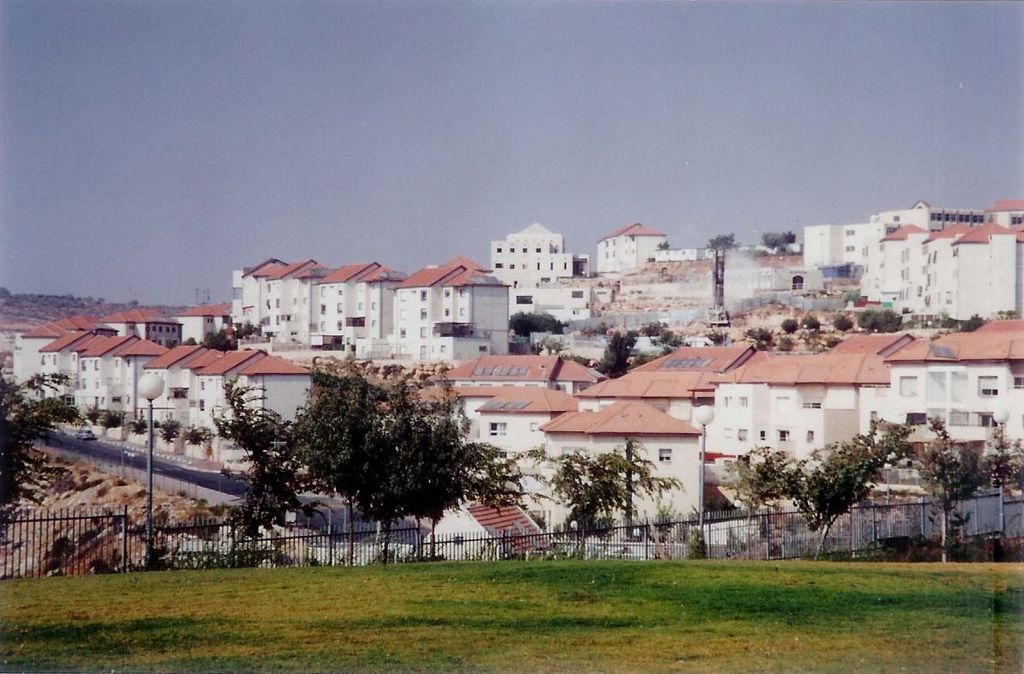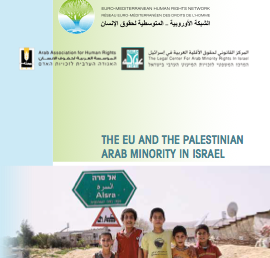Israeli Government Adds 20 Jewish Towns to “National Priority Area” List, 9 are Settlements in the Occupied West Bank; Arab Towns in Israel Excluded

Illegal Israeli Jewish settlements will receive subsidies and special housing, educational, and cultural benefits
“The policy of discrimination continues. Arbitrary decisions we warned about are now being implemented on the ground,” says Adalah Attorney Sawsan Zaher. On 4 August 2013, the Israeli Cabinet approved a list of new “National Priority Areas” (NPAs) that consists of 20 new Jewish towns, 9 of which are settlements in the Occupied West Bank. National Priority Areas are municipal regions designated by the government to receive tax cuts, special benefits and funds for housing, education and culture, as well as tax exemptions, special mortgage rates, and other lucrative subsidies.
“We warned, following our 1998 petition to the Israeli Supreme Court and afterward, that the NPA policy grants large financial benefits to Jewish towns, at the expense of Arab towns and villages, which were essentially excluded. The most serious aspect of this policy is that governmental ministries themselves designate the NPAs, and decide the benefits and support that they receive. Thus, these benefits are not awarded based on socio-economic need and fairness, but on purely political considerations,” commented Attorney Zaher. The new list was put to vote during a Cabinet session held on 5 August 2013, during which some Cabinet members accused the Prime Minister, Benyamin Netanyahu, and the Minister of the Economy, Naftali Bennett, of designating NPAs based on “party political interests”.
A discriminatory and arbitrary policy
In 2009, the government declared a new policy, in order to circumvent the Supreme Court’s decision, by establishing new criteria for selecting NPAs: proximity to the national “borders”; level of security threat; and that the town was established within the past five years. These criteria have been followed and in the overwhelming majority of cases apply only to Jewish towns. The final criterion is that the town be economically disadvantaged and in the periphery of Israel, located far from of the center of the country (the Tel-Aviv Jerusalem area).
Since the Naqab (Negev) and the north meet this last criterion, the government has claimed that 40% of the citizens covered by this criterion are Arab citizens. However, the decision of which individual towns and villages within these regions are selected to receive special benefits and funding, and more importantly, the actual implementation and distribution of those resources, belongs to the ministers responsible for the benefits in question. Because there are no means of verifying whether the government has fulfilled its promises to Arab communities listed as NPAs, there has been no change in the arbitrary nature of the policy’s implementation and there are no guarantees or protections against discrimination or marginalization of Arab citizens, despite the Supreme Court’s 2006 decision.
Government’s economic policy favors settlements, despite Supreme Court ruling
Adalah has long opposed the discriminatory designation of National Priority Areas and the lack of transparency surrounding it. In June 2013, Attorney Zaher sent a letter to the Ministry of Education and two letters to the Ministry of Culture and Sport (one to each respective department) to request a list of the names of the towns gives NPA status which had actually received funds and benefits, and for a detailed breakdown of these benefits to enable a direct comparison between what Jewish towns had received versus what Arab towns had received. Adalah has not yet received a clear response to its inquiries.
The absence of a response is the latest example of the state’s refusal to make public its actual resource allocation between Jewish and Arab communities in Israel; this practice has been consistently criticized for being discriminatory against Arab citizens. In 1998, Adalah Attorney Hassan Jabareen filed a petition to the Israeli Supreme Court on behalf of the High Follow-Up Committee for Arab Citizens of Israel challenging the government’s designation of NPAs. Adalah argued that the government’s designation of NPA status was arbitrary and discriminatory; of the 553 designated NPAs, only 4 small towns were Arab, although the alleged purpose of the NPAs was socio-economic need. In 2006, in a landmark decision, the Supreme Court declared the government’s policy regarding the designation of NPAs in the field of education illegal, and ruled that the Knesset should legislate in such matters as they involved the massive allocation of state resources.
For more information:
Barak Ravid, “Mapping national priorities || Cabinet approves new development plan to benefit more Israeli settlements,” Ha’aretz, 4 August 2013
Adalah Position Paper, “On the Israeli Government’s New Decision Classifying Communities as National Priority Areas," February 2010
Adalah, “In Landmark Decision, Supreme Court Cancels Long Standing Governmental Socio-Economic Plan as it Discriminates against Arab Citizens of Israel,” March 2006
(Picture: The settlement of Beitar Illit in the Occupied Palestinian Territory)















